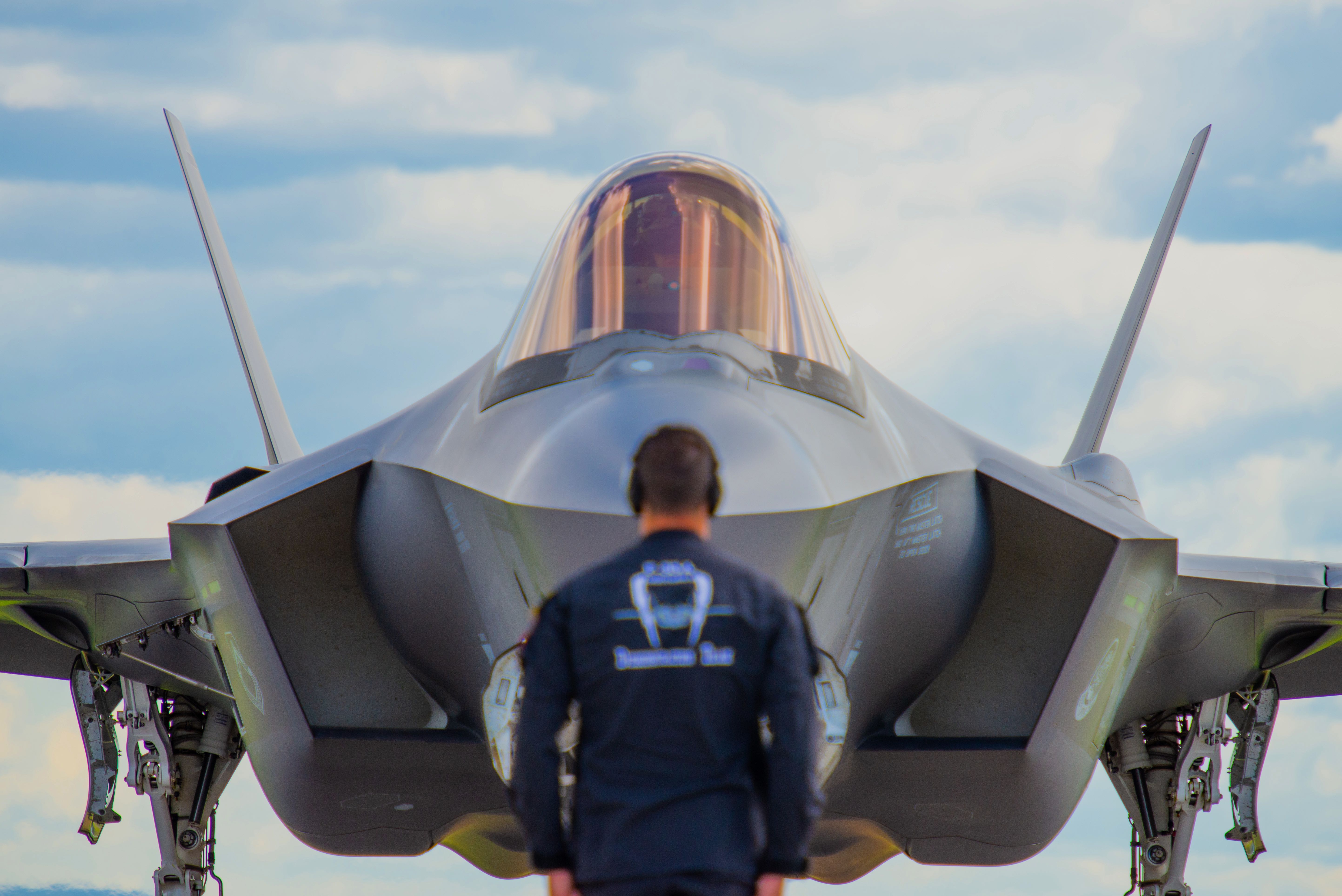
THE PENTAGON – The F-35 Lightning II Joint Strike Fighter program’s civilian and military management are in the midst of a changeover just as government officials from the U.S. and partner countries are considering ejecting Turkey from involvement in the aircraft’s manufacture and deployment.
Last week, Air Force Lt. Gen. Eric Fick relieved Vice Adm. Mat Winter as the F-35 program manager. With the program manager position switching from the Navy to the Air Force, the F-35 program’s civilian service acquisition executive also switched from the Air Force to the Navy. James Geurts, assistant secretary of the Navy for research, development and acquisition, is now overseeing the program.
“I look forward to taking an active role as the service acquisition executive for the F-35 and working with Eric and his team, those in the department, international partners and Congress to deliver and sustain this lethal capability our military needs to compete and win,” Geurts said in a statement.
Occurring as the Navy and Air Force swapped F-35 program leadership roles, Turkey, an F-35 program partner since its start in 1999, received its first shipments of a Russian-made air S-400 defense system. Pentagon officials and lawmakers have for months tried persuading Turkey against purchasing the Russian system, which they believe could be used to probe the stealthy F-35 aircraft for weaknesses and share this information with military planners in Moscow.
The House and Senate versions of the Fiscal Year 2020 National Defense Authorization Act both included language prohibiting the transfer of F-35 aircraft to Turkey if the S-400 sale went through. Ultimately, Turkey planned to buy 100 F-35 aircraft, according to Lockheed Martin.
On Friday, acting Secretary of Defense Mark Esper briefly commented on the Turkish F-35 issue while greeting Uzbekistan’s Minister of Defense Bakhodir Kurbanov at the Pentagon Friday morning.
“We are aware of Turkey taking delivery of the S-400, our position regarding the F-35 has not changed, and I will speak with my Turkish counterpart Minister (Hulusi) Akar this afternoon. So there will be more to follow after that conversation, but for now let me welcome our guests,” Esper said, according to a press pool report.
Esper spoke with Akar for about 30 minutes Friday. The Pentagon did not release details of the call. Akar, according to various media reports, said he and Esper discussed Turkey’s purchase of the S-400 system but that Turkey’s strategic orientation not changed, according to a report posted by the BBC.
Ellen Lord, undersecretary of defense for acquisition and sustainment, was scheduled to explain the status of Turkey’s involvement in the F-35 program during a Friday press briefing. However, after two delays, the briefing was ultimately canceled late in the day and a Pentagon spokesperson was unable to provide a reason for the cancellation.
Turkey received its first F-35 aircraft in June 2018, at a delivery ceremony held at Lockheed Martin’s Fort Worth, Texas, facility. Since then, Turkish pilots have on the F-35 at Luke Air Force base in Arizona. Turkey’s first F-35 were scheduled to depart the U.S. for Turkey in November, according to Lockheed Martin.
In May, Lord told reporters contingency plans were already being developed by the Pentagon in case Turkey was booted from the F-35 program. According to the F-35 website, eight Turkish companies have contributed to the Lockheed Martin-built F-35 and the Pratt & Whitney propulsion system. Turkey also had program approval build F135 engines and was to have a regional F135 engine depot overhaul facility.
For now, F-35 production is continuing as planned, and the program office continues working with Lockheed Martin to lower the aircraft cost, a chief concern for Winter, who is now retiring from the Navy after 35 years of active duty service. As he was relieved by Fick last week, Winter released a statement highlighting what he considers the achievements and significant F-35 milestones to occur under his watch.
Winter cited the progress made with bringing international partners online during his tenure at the joint program office. Between May 2017 and July 2019, Winter wrote Norway, Japan, Australia and the United Kingdom all had their first F-35 arrivals. The United Kingdom, along with Israel and Italy also declared the initial operational capability of their F-35 programs. Korean maintainers started training on F-35s earlier this year at Eglin Air Force Base in Florida.
Reducing the program cost, including the price of each aircraft and long-term maintenance costs, was a constant theme for Winter. Last month, Lockheed Martin and the Joint Program Office reached a deal that brings the future production costs of the F-35A standard take-off and landing variants to below $80 million per aircraft. Winter said the cost for the F-35B short take-off/vertical landing and the F-35C catapult-assisted launch and arrested recovery variants also had been reduced as their production has increased.
“Driving down cost is critical to the success of this program, and the cost of each fighter is steadily declining,” Winter said.





